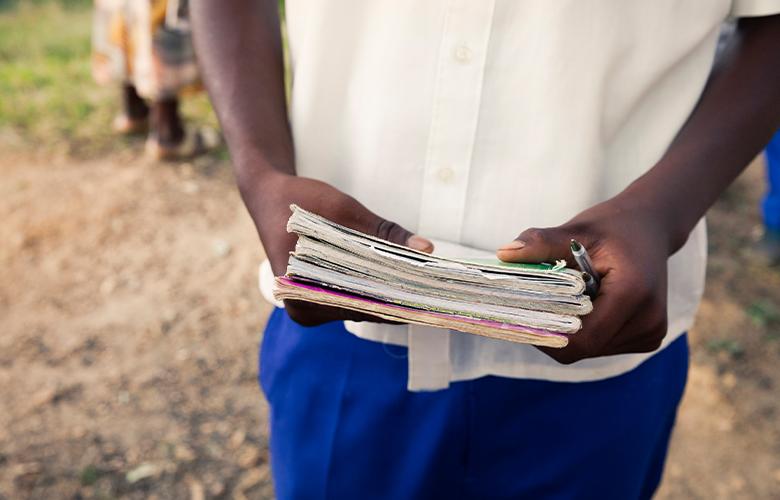
Throughout the pandemic, I’ve seen how the transition to distance learning affects my cousins in elementary school and friends in grad school. I’ve seen the varying degrees to which individuals and communities in the United State take COVID-19 precautions, and I’ve had countless conversations with friends and family on how we’re coping.
Given the challenges that my highly educated and well-to-do network has experienced regarding education, COVID-19 prevention, and resilience, I made assumptions about how the pandemic was affecting EDC’s beneficiaries in developing countries. I assumed they struggled more and that parents focused on immediate stressors like food rather than school. I thought reduced access to information combined with lower educational attainment would impede people from taking COVID-19 prevention measures as seriously as my network. Given the further economic decline in EDC’s beneficiary communities, I couldn’t imagine how people would cope with the stress. Data proved me wrong.
EDC surveyed 7,248 beneficiaries in Zambia, Mali, Rwanda, Honduras, the Democratic Republic of the Congo, and Liberia on the effects of COVID-19 on their lives. Data showed similar trends to my observations at home:
- 98% are concerned about disruption to education. In Zambia’s lowest resource communities, parents who may be uneducated themselves are doing their best to teach their children during school closures and encourage them to study.
- 83% physically distance; 92% wear masks in public; and 97% wash their hands more regularly.
- 71% have gone to the market, store, or pharmacy in the past week; fewer have left home for nonessential purposes. As the pandemic continued, people went out for nonessential purposes slightly more.
- 59% believe they can recover from any life challenge. If they need help, they believe they can rely on:
- Changing their primary income source (58%)
- Friends/family (46%)
- Financial support (37%)
- Government (25%)
To undertake an effective and sustainable international development project, staff must understand:
- Differences in education, resources, or other socioeconomic factors do not translate to lack of capability.
- The unique identity and experiences of an individual and of a community result in unique strengths and weaknesses in managing a shock such as a pandemic.
- People everywhere have the same basic goals—to be healthy and happy.
Without such understanding, a superiority complex can develop, diminishing both the assets of the beneficiary population and the strength of the project.
Continuously challenging implicit bias is crucial to achieving my goals of promoting equity, connecting with people of different backgrounds, and becoming an international development leader. As a monitoring, evaluation, and learning professional, I believe the strongest challenges to implicit bias are based in data.
| Neena Aggarwal is a monitoring, evaluation, and research assistant in EDC’s International Development Division. She manages the COVID-19 study, which spans six countries, and is passionate about data-driven decision-making. |

Add new comment